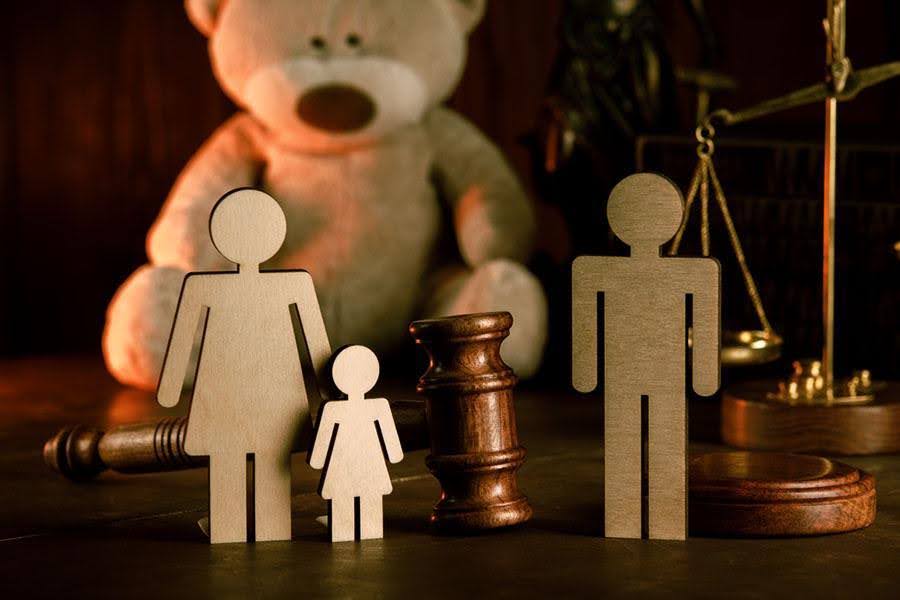Under California law, both parents have the same rights until there is an official court order specifying otherwise. While California treats both parents equally, you may ask yourself, “What are my rights as a father in California?”
Read on as we guide you through and explain your rights as a parent.

What Are My Rights as a Father in California?
In California, your rights as a father are equal to those of the mother as long as you are the child’s legal parent. Child custody cases may get rather complicated, so it is best to have a family law attorney California by your side.
You are a child’s legal parent if the following applies to your situation:
- You and the other parent were married or registered domestic partners during birth or conception.
- You are the child’s birth parent, but not if you were a surrogate.
- Both parents filed a declaration that establishes you as the legal parents.
- A judge determines that you are a legal parent in a court case.
Establishment of paternity
Parentage must be established in order to identify the child’s legal parents as a prerequisite for obtaining orders for child custody, visitation, and child support.
If you are not the legal parent of a child, you must establish parentage so the court can grant such orders. Parentage is typically undisputed when a child’s parents are married. The law will regard the married pair as the child’s legal parents.
The parents who are legally obligated to provide support for the child are the child’s legal parents. As a legal parent, you have rights and responsibilities such as the following:
- You can ask the court to make custody and visitation orders.
- You are required to support your child financially.
- You can be listed on your child’s birth certificate.
Voluntary acknowledgment of paternity
A Voluntary Declaration of Parentage (a VDOP) signed by both parties may establish paternity. This declaration designates both parents as the child’s legal parents. The signature on the form must be voluntary.
The VDOP is a government form that creates the legal parent-child relationship. When parents are married, the form is most often signed in the hospital when the child is born.
If you are not the child’s legal parent and think you should be, you can sign and turn in the form. This is especially useful in protecting unmarried fathers’ rights in California.
Court-ordered paternity tests
Getting a court order stating a child’s legal parents is the process of establishing parentage. According to California Family Code §7573, a child without a married parent does not have a legal father until parenthood is proven. This indicates that the child’s father has no formal obligations or rights over the child.
The court may issue orders after you file a Petition for Custody and Visitation to ascertain who the biological parents are. This may entail the court directing the parents and child to undergo DNA testing.
Custody and visitation: California visitation rights for fathers
Types of custody arrangements
Child custody refers to the sum of the rights and responsibilities of the parents for taking care of their children. In California, two types of child custody are legal and physical.
Legal custody has the parent making all the critical decisions, while physical custody refers to who the children live with most of the time. Legal and physical custody in the state of California can be joint or sole. Legal parents with custody have the ability and right to make the following decisions:
- Education or childcare
- Religious activities
- Mental health counseling or therapy needs
- Medical care
- Extracurricular activities
- Travel

Factors considered in custody determinations
California courts prefer to award joint custody as they consider it in the children’s best interests. To determine custody, the judge will consider the following:
- Age and health of the child/children.
- Emotional bond between the parents and the children.
- The child/children’s ties to their home, school, and community.
- The ability of both to care for the child/children.
- History of family violence.
- Regular or ongoing substance abuse by either parent.
Visitation schedules and parenting plans
Legal parent visitation (parenting time) can be open, upon agreement, with a schedule, supervised, or none. The four main types of parenting time orders the court may make when you are determining parenting plans are:
- With a schedule – The parents have a set schedule with dates and times the child/children spend with each one. The schedule can include holidays, special occasions, and vacations.
- Reasonable (Upon Agreement) – With these open-ended orders, the court allows the parents to work out the parenting plans between themselves.
- Supervised – The court makes this type of order when there are concerns regarding the child’s/children’s safety and well-being.
- No visitation – When a parent is emotionally or physically abusive, they may get no visitation.
Child support obligations and rights
If you are determined to be the legal parent of a child, then you are obligated to take care of their financial needs until they turn 18 or 19 and still in high school. The judge determines guideline child support based on:
- Your financial situation, i.e., your income.
- The time period you spend with the child/children aka timeshare.
- How both parents file taxes, i.e, single or head of household.
If you are paying child support but need to change the order, you may file for a change if:
- You are now making less money than the other parent.
- The other parent is now earning more money.
- You are now spending more time with your child/children.
- If you initially agreed to pay above guideline but no longer can or want to.
Rights in adoption and parental rights termination proceedings
In California, a judge can determine who or not a child’s legal parents are through an adoption case. Adoptive parents are considered legal parents, no matter the biological connection. If you think that you are not a child’s parent and someone else is, you may start a parentage case.
The question of paternity will be dropped and settled in accordance with California Family Code §7541. If the genetic testing shows that the spouse or presumed father is not the biological father of the child, his legal rights may be terminated.

Challenges and Issues Facing Fathers in California
Can a father take a child away from the mother in California? California is a state that upholds equal rights for both parents regarding co-parenting and visitation, so no, a father cannot just take away a child.
Biases may still exist in family court proceedings, especially regarding fathers’ rights. This is why, as a father, it is wise to have a family law expert by your side.
Our Moore Family Law Group attorneys may help you navigate the obstacles in determining paternity. Contact us, and let us help you protect your rights as a father.
Conclusion
What are my rights as a father in California? As we explained above, if you are a child’s legal parent in California, your rights as a father are equal to those of a mother.




